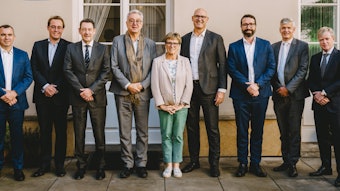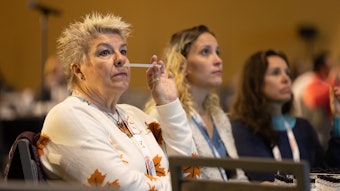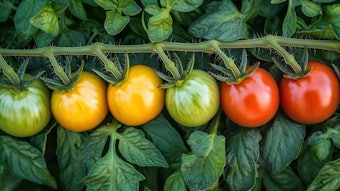
Perfumer & Flavorist+ (P&F+) connected with the honorary vice president of the British Society of Flavourists (BSF), Andrea Albertino (AA), to discuss the line-up of impressive lectures that were hosted throughout 2022. The following introduction and answers were provided by Albertino.
The BSF started organizing online webinars during the pandemic in order to offer scientific lectures to the flavor community when forced to be sitting at home, but it turned out to be a great success and continued throughout 2022. We had the honor to start at the end of 2020 with professor Gary Reineccius, Ph.D., followed for example by professor Vicente Ferreira, John Wright, professor Andrea Büttner and Martin Steinhaus, Ph.D., during 2021.
P&F+: Can you touch on some of the highlights from the 2022 lecture series?
AA: In 2022, we started in January, and we had eight webinars in total with the purpose to touch different topics able to spark interest within our audience. The flavor industry is highly protective, for obvious reasons, and it is not possible to pass the knowledge to flavorists working for different companies. Therefore, our intention has been, and still is, to involve speakers who are able to motivate and stimulate our members without sharing confidential information, to inspire new talents and generate new ideas. For the second year running, the BSF also organized an event in collaboration with the SFC (Society of Flavor Chemists) in the United States, following the great response we had a year before hosting professor Peter Schieberle and Joel Mainland, Ph.D.
We do believe that leveraging each other as societies with common goals is increasing our visibility inside the food industry as well as outside trying to make people aware of what flavors are and why taste and smell are fundamental senses in our daily life.
We started off with professor Giancarlo Cravotto, currently a full-time professor of Organic Chemistry at the University of Turin and Vice-Director of the Department of Drug Science and Technology, who spoke about green extraction technologies. His main research interests are the development of green and sustainable synthetic and extraction procedures paving the road to non-conventional techniques such as high-intensity ultrasound, hydrodynamic cavitation, microwaves, flow chemistry and ball milling.
Professor Andy Taylor was our guest in February who asked (and answered us) if there is the possibility to predict sensory properties through flavor formulations. Taylor set up his own consulting company called Flavometrix and he is still part of the Food Science group at the University of Nottingham in the UK. Luckily for us, it is unlikely humans will be fully replaced by machines in our field, but leveraging the progress of technology allows us to keep pace with such a fast-moving industry.
Taylor was followed in April by professor Chiara Cordero, who is based at the University of Turin as well. She has been spending a lot of years working together with professor Carlo Bicchi who was our guest in 2021. Cordero, who was included by The Analytical Scientist in the “Women Power List” as one of the 50 most influencing women in the analytical sciences, is a full-time professor of Food Chemistry and her research is mainly focused on advanced food chemical characterization (fingerprinting with multidimensional technologies), solvent-free sample preparation for sensomic and discovery of food intake markers and metabolic fingerprint after diet-induced derangements.
Robert Cordina, Ph.D., was our guest in May, presenting a lecture with the title “The molecular basis of cuisines.” Cordina is now an associate principal scientist at Mondelēz International and Committee Chair of the Food Group at the Royal Society of Chemistry, as well as a visiting lecturer in food chemistry. He has worked in both the pharmaceutical and food industries in several countries and he is currently the lead modeler for Computational Chemistry and Process Modelling for Mondelēz R&D globally. He presented an interesting point of view where cuisines can go beyond the well-known flavor pairing, showing that more than just finding common flavor molecules in different ingredients are needed to make a dish taste good.
After the summer break, we hosted Alex Woo, Ph.D., who presented a comprehensive lecture on flavor modulation, focused on clean-label sweetness. Woo currently works, after holding leadership positions in well-known multinationals, as an independent consultant specializing in taste and smell neuroscience and state of art clean label plant-based sweeteners and flavors. Flavor modulation is a hot topic across the flavor industry, from sugar reduction to plant-based food and beyond.
The last part of the year has been packed with three webinars in less than one month. First, we hosted Tian Yu, Ph.D., and Vanessa Rios de Souza, Ph.D., who presented novel approaches in Sensory Science using artificial intelligence (AI) tools. The former obtained a Ph.D. in neuroscience, the latter in Food Science and they both work for Aigora, an American technology company that helps sensory and consumer teams to implement AI.
In November, we held the second combined event SFC-BSF, hosting Jaroslava Panakova, Ph.D., and Prof. Barry Smith who have been able to entertain our attendees with topics that are not usually touched by flavorists. Panakova, who is an anthropologist based in Slovakia, discussed how odors, the mental representations of odorous stimuli, are considered socially constructed. Using her ethnographic material from the Yupik-Chukchi community in Chukotka, Russia, she explored how the smells associated with particular emotions encode the feeling of belonging, our social relationships and thinking about the world. Prof. Smith, who is the director of the Institute of Philosophy at the University of London’s School of Advanced Study, highlighted the difference between the perception of flavors and flavors themselves. The relationship between them is far from simple and despite the psychologist and neuroscientist findings, there is room for the idea of flavor as a multi-dimensional experience affected not only by its chemistry but also by the experience around it.
We closed the year with a lecture held by Dan Saladino, a prominent BBC speaker, and writer who published in 2022 “Eating to Extinction,” widely considered one of the best books of the year about food. In his lecture and in his book, Saladino stressed the serious problems we are having with our global food chain, facing the risk of losing a large amount of traditional and historical products across the globe and by no means increasing vulnerability in the face of climate change. He traveled the world reporting stories of the people who continue to cultivate and consume nearly forgotten foods and suggesting how to rescue our food system before it’s too late.
P&F+: What were some of the major takeaways from the lectures? Any trends or innovations that emerged or were shared by speakers?
AA: The world of flavors is very diverse and fast-pacing and it is nearly impossible to build up comprehensive knowledge covering every single aspect of it; therefore the only way to keep up with it and be competitive is to listen, learn and be inspired by eminent persons who are spending their lives exploring this fantastic subject from several different sides. Companies protect their internal knowledge as much as possible, therefore flavorists must find a way to expand their expertise beyond the day-to-day business and inspire young trainees: this is what our lecture series has been doing so far.
There are some major trends in our industry and speakers covered these topics with excellent lectures; I would mention AI, flavor modulation and sustainability above all.
P&F+: What are your plans for 2023? Will you continue with virtual lectures?
AA: We have already started the year with a busy schedule and it is our goal to continue offering our listeners fascinating lectures and inspiring them to create new flavors, but always keeping an eye on industry trends, science and innovation. Online events, post-pandemic, are still a great opportunity to put together people working across the globe, at different time zone, without the necessity of jumping on a plane, but at the same time, it is our intention to mix things up, trying to offer, during 2023, hybrids event too. As always, the BSF welcomes new members to learn with us and connect with our diverse network.










